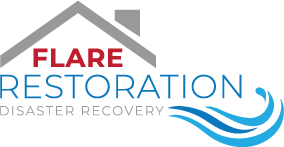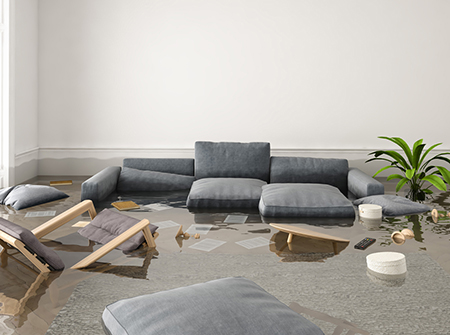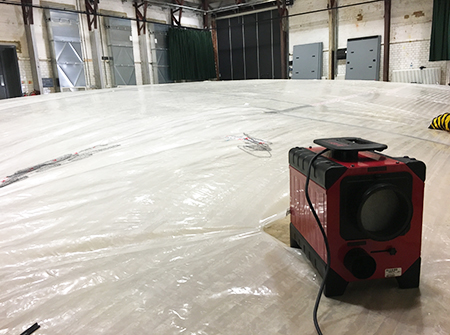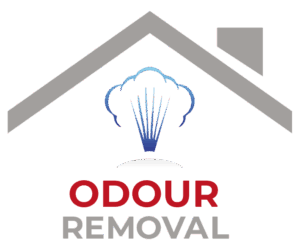When your home or business requires structural drying, we’re here to make it right.
Structural Drying
Specialist drying experts for properties
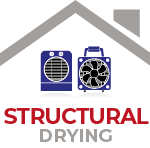
Although drying equipment is widely available and covers a broad range of deployments, it is important that, in certain cases, lateral thinking about what is damaged and how drying regimes can impact businesses and occupants is established at the outset.
This approach serves to demonstrate an awareness of all the drying equipment available today and its capabilities.
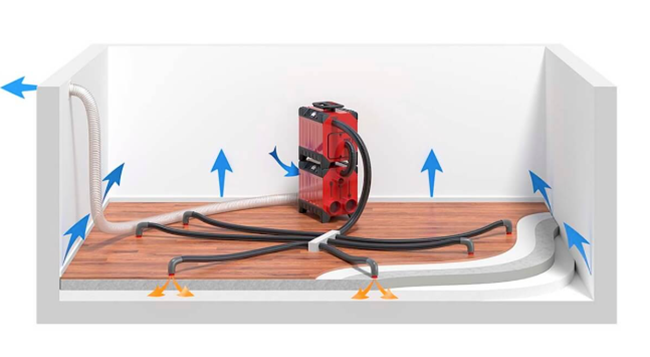
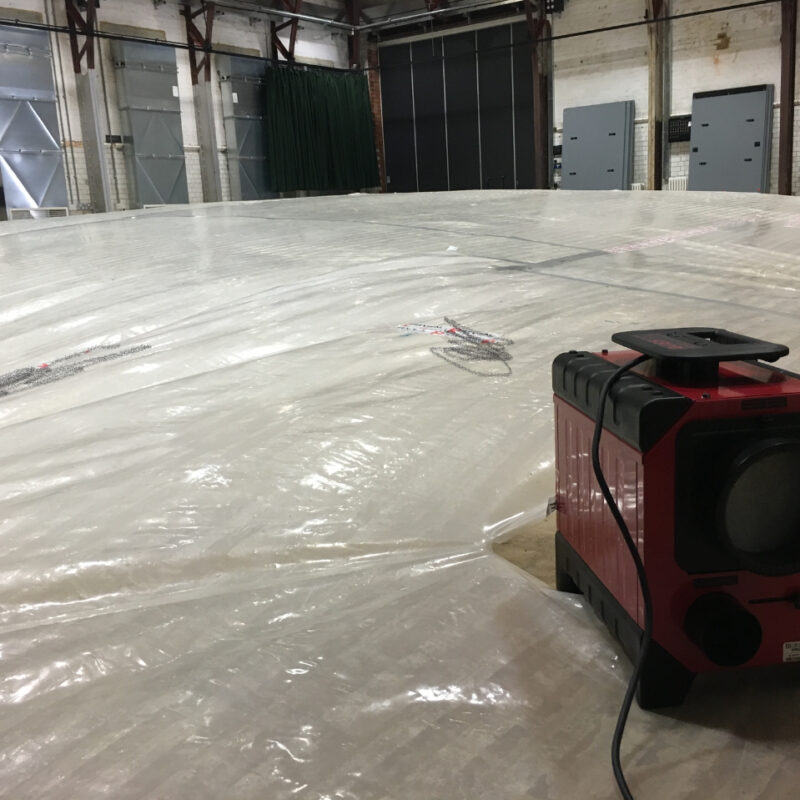
In many instances, Flare Restoration has deployed state-of-the-art drying equipment designed to minimise the destruction of building materials and the everyday use of affected locations.
State-of-the-art drying process
Our understanding of regime deployment and how materials behave when wet is embedded in our reporting process and clearly demonstrates our specialist restoration knowledge and professionalism.
This consistent approach serves to uphold our desire to minimise cost, impact on livelihoods, reduce alternative accommodation and where possible, reduce reinstatement requirements.
Specialist drying techniques include deploying containment areas, wall and floor voids, suspended floors voids, solid and ridged insulated screed and utilising footprints of existing furniture to deploy discreet drying processes.
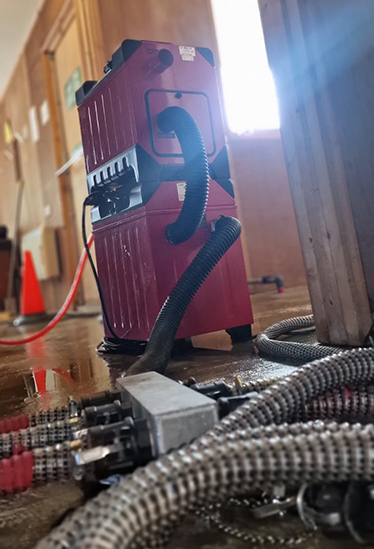
Water extraction and decontamination
Prior to any drying work, if required, we can provide fast, effective flood water extraction from your domestic or commercial premises using our powerful water extraction units. Once any excess water is removed, our decontamination team will work to achieve high level decontamination process.
Suction drying
Our suction drying process pumps excess water out of the affected area. It’s similar to pressure drying. However, suction drying takes dry air from the room and forces it through gaps or purposely drilled holes into the damp areas. Damp air is then sucked out and exited via a turbine.
Room dehumidification
Our room dehumidification service helps dry individual rooms affected by water damage. This is achieved by blowing dry air into the affected room, removing moisture. We also offer dehumidifiers in various sizes for hire, depending on the extent of the damage.
Vacuum & high-pressure drying
Drying needs to be undertaken as soon as possible after flooding to prevent further damage. To do this, we commonly use vacuum systems and high-pressure drying to force hot, dry air into cavities, voids, and insulation. This enables us to dry these areas with minimum disruption. Pressure drying is often a faster solution than suction drying.
Remote monitoring
We make use of remote monitoring to keep an eye on the drying process without needing to be physically at the property. This allows us to keep on top of the drying process, saving you money and reducing downtime.
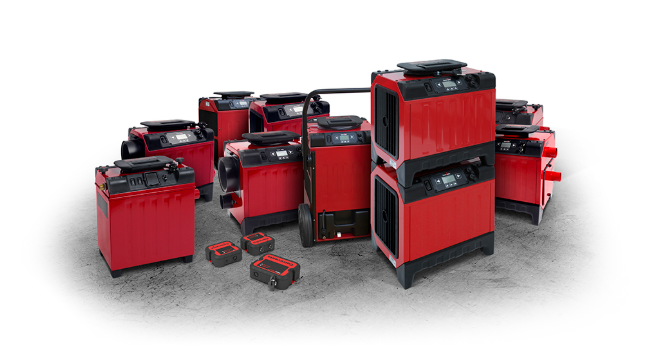
Related Services
- Building Restoration & Renovation
- Removals & Storage
- Artwork & Furniture Restoration
- Textile Cleaning & Restoration
- Dry Ice Cleaning & Restoration
- Surface Cleaning & Restoration
- Rug Cleaning & Restoration
